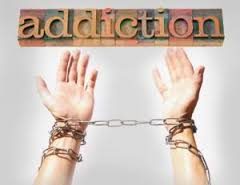What do you think when you hear the word “addiction”? Do you think that it’s a choice? Do you stigmatize people who are claimed to suffer from the word “addiction”? What if I told you that addiction is a disease? What would you say? Well….. I’m here to argue that addiction is a biological disease.
First lets define what addiction is.
The International Statistical Classifications of diseases and Related Health Problems (ICD-10) defines addiction, characterized as uncontrollable and unpleasant mood states leading to compulsive drug seeking behaviors and taking the drug despite negative consequences. The ICD-10 is a criterion for diagnosing diseases that was created by physicians, psychiatrists and psychologists. A disease is defined by “a disorder of structure or function in a human, animal, or plant, especially one that produces specific signs or symptoms or that affects a specific location and is not simply a direct result of physical injury.” What I hope to do now is explain why addiction fits into the general definition of a disease.
A review article in the Frontiers of Neuroanatomy journal explains how addiction affects the striatum, (which is an area in your brain) as well as the signal transduction in your brain that is responsible for not only cell activity but also for how you think, feel, and behave. Addictive substances bind to receptors in your brain which then releases neurotransmitters such as glutamate and dopamine and carry out their effects in this way. The striatum is an important area when researching and discussing addiction as this area of the brain contains the Nucleus Accumbens (NAc) and the Ventral Tegumental Area (VTA), which are involved in the mesolimbic reward system.

The brain reward system is responsible for making you feel good or a reward from a certain stimulus. Drugs of abuse target this natural biological mechanism and hijack it to manipulate the individual to form stronger memories that are related to drug seeking behavior.
.
Drugs can induce proteins to be created to change and strengthen neuronal connections within the brain that favor maladaptive behavior. Chronic Drug Abuse is characterized with the built up of pharmacological tolerance, dependence and sensitization. Tolerance is characterized as needing more of the drug to experience the same “reward”. Dependence is characterized as experiencing withdrawal symptoms if the intake of the drug stops. Sensitization is the experience of the individual to crave the drug. The reason why these aspects occur is because receptors in your brain change their composition in number because there is so much neurotransmitter readily available that your body does not need as many receptors. So once drug intake ceases there is not enough neurotransmission occurring because there is a decreased amount of receptors and this is when the individual experiences withdrawal symptoms. Withdrawal symptoms vary by drug specificity but some examples are sweating, headaches, tremors, nausea, irritability, etc. People can overcome addiction by completely abstaining from the substance but are at high risk for relapse for many years after.
So, I think I have established a specific structure in the human body that is dysfunctioning and as a result the individual experiences withdrawal symptoms and compulsive drug seeking behavior that is unavoidable. Doesn’t this fit into the general definition of a disease? It’s weird to think that your brain is a part of your biological body. I’m not sure why people try to separate it. But anyways, the causes and risk factors for addiction exist in a broad spectrum. It could be due to social peer pressure, genetic predisposition, prescription drugs, dealing with a life hindrance, or taking drugs to escape other symptoms from comorbid mental illnesses.

Addiction affects around 20 million Americans and around 1 and 10 people suffer from the disease. Around 100 people die everyday from drug overdose in the United States and in 2015 drug overdose claimed the lives of over 50,000 people. Addiction doesn’t kill just by overdose deaths either; other factors such as accidents and suicides are a huge problem with the prognosis of addiction. It is time to change the way we view addiction as a society so that we can create progressive changes and stop these senseless deaths and crimes.
It Is Time to Think Differently
